Let German Comics Explain The Absurdity Of Austerity In Greece

While Germany may be Greece's most fearsome opponent in negotiations over the country's debts, some German comics are sympathetic to the dilemma facing their Mediterranean neighbor.
In March, the German TV comedy show "Die Anstalt" (meaning "The Institution") imagined what would happen if Greece's troika of international creditors -- the International Monetary Fund, the European Central Bank and the European Commission -- were just three German guys sitting down in a restaurant in Greece. The skit provides a brilliant metaphor of the impossible choices Greece must make to pay back its creditors. The Huffington Post's Braden Goyette translated the sketch, and we have shared some choice segments below.
In a particularly funny segment at the beginning of the sketch, three German men calling themselves the troika sit down to eat in a Greek restaurant. They want to be served, but when the restaurant owner offers them classic Greek dishes -- moussaka, souvlaki and tzatziki -- the troika members inform him he cannot serve any of those items. Instead, the Greek restaurateur must serve a new German menu, in order to "receive the next installment of funds" the restaurant needs to survive.
By taking wine off the menu to cut costs, the troika has rendered the business inoperable. Nonetheless, the German patrons laud the new menu for enabling a "completely balanced" budget.
Love HuffPost? Become a founding member of HuffPost Plus today.
Bar owner: Your help has only made things worse!
Troika man #1: Ach, now it's our fault again?!
Bar owner: Yes, last time you took wine off my menu!
Troika man #1: There was no other alternative.
Bar owner: This is a wine bar! Now I don't have any sales anymore.
Troika man #2: But now your budget is completely balanced.
Bar owner: Yes, I have no expenses, but I also have no income.
Troika man #1: You see? Doesn't get more balanced than that!
The restaurant owner goes on to complain that it is not his fault he got into debt and needed the troika's help. The troika is unsympathetic, and only has unyielding Old Testament justice to offer.
Bar owner: You don't understand! No wine, no business!
Troika man #2: You should've thought of that before you got into debt!
Bar owner: I inherited the debt from my father!
Troika man #1: You should've thought of that before you got that father!
The scene is a spot-on illustration of Greece's central grievance with its creditors -- a grievance backed, incidentally, by a broad array of economists. Like the Greek restaurant owner denied his staple menu offerings to save money in the short term, Greece says the fiscal austerity demanded by its creditors in exchange for bailout loans have prevented the country from recovering economically. And the Greek government thinks this approach is penny-wise and pound-foolish.
Thanks in no small part to the massive fiscal contraction Greeks have undergone in the past five years, the country's economy is one-quarter smaller than it was in 2008, with official unemployment at over 25 percent. That has led Greece's debt to grow faster than its economy, making it unsustainable at about 177 percent of the gross domestic product. Greece is now caught in a cycle of asking for new loans to pay off the old loans, on terms that make it harder for the country to emerge from a deep economic depression.
Source: tradingeconomics.com
What is more, the Greek restaurant owner's insistence that his father's profligacy is to blame for the debts he must manage is similar to the claims of the current Syriza government that it is paying the price for past governments' irresponsibility. Then-Greek Finance Minister Yanis Varoufakis made this point on June 22 in an op-ed in The Irish Times aimed at swaying public opinion toward compromise with Greece.
"Greece's drama is often misunderstood in northern climes because past profligacy has overshadowed the exceptional adjustment of the past five years," he wrote. In fact, as Varoufakis notes, the IMF estimates that when adjusting for its sluggish economic performance, Greece had the largest budget surplus before interest of any nation in the eurozone in 2014.
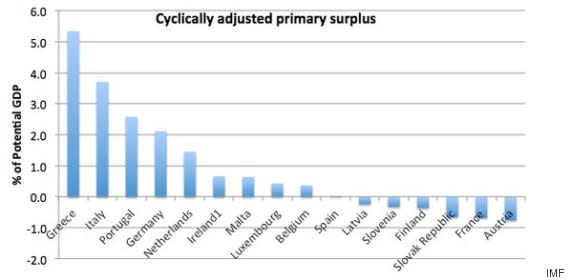
Source: IMF, 2015.
But much like the "troika" patrons in the German television scene, the public and political leaders in Germany, Greece's largest creditor and the continent's most powerful nation are uninterested in Greece's complaints. They were reluctant to transfer any money to Greece's indebted government and banks to begin with; the idea of giving Greece better terms on those loans, by restructuring Greece's debt, for example, strikes them as downright offensive. Now, with Greece's banks on the brink of collapse, the German government is indicating it would rather expel Greece from the eurozone -- marking an unprecedented reduction in the eurozone's membership -- than offer Greece any additional compromise measures.
The German comics are not the only ones trying to point out the futility of the German government's approach to Greece. In May, Thomas Piketty, the French economist famous for studying income inequality, told German newspaper Die Zeit that Germany has "no standing" to lecture Greece -- or any other country -- about paying its debts. That is because in 1953, Greece and 20 other European countries wrote off most of Germany's debts from World War II and restructured the rest.
In the interview, Piketty echoes the sentiments of the fictional Greek restaurant owner who asks the troika members not to blame him for the flaws of his father.
"The Greeks have, without a doubt, made big mistakes. Until 2009, the government in Athens forged its books," he said. "But despite this, the younger generation of Greeks carries no more responsibility for the mistakes of its elders than the younger generation of Germans did in the 1950s and 1960s. We need to look ahead. Europe was founded on debt forgiveness and investment in the future. Not on the idea of endless penance. We need to remember this."
CORRECTION: This article previously misidentified the skit's title as "Bananenrepublik."
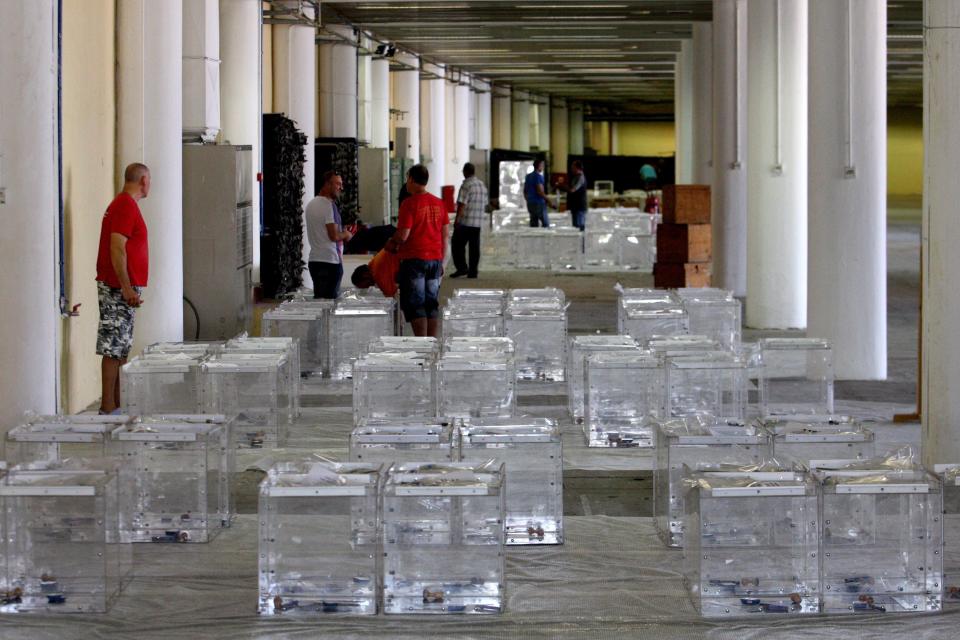

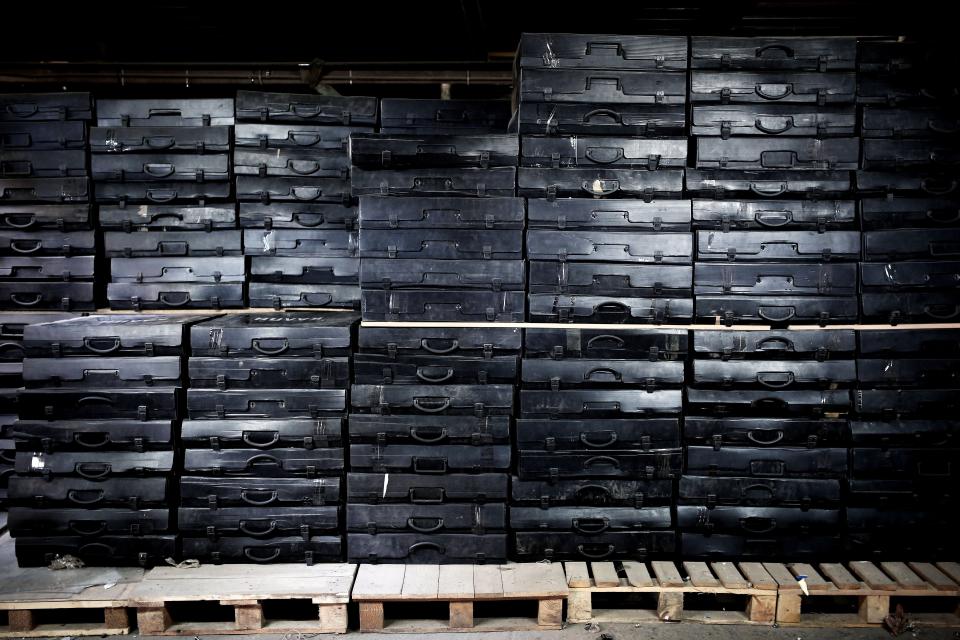

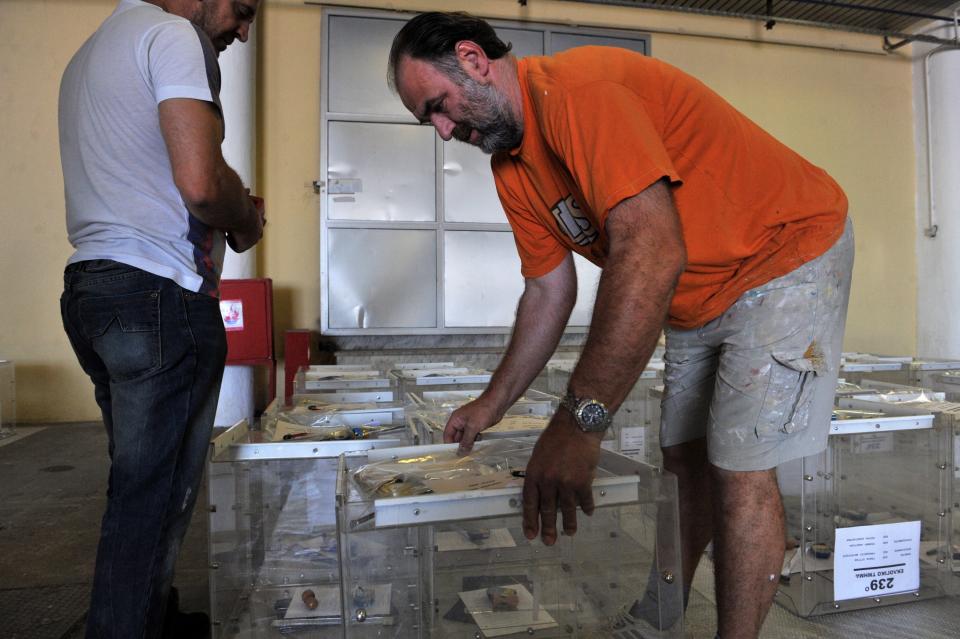
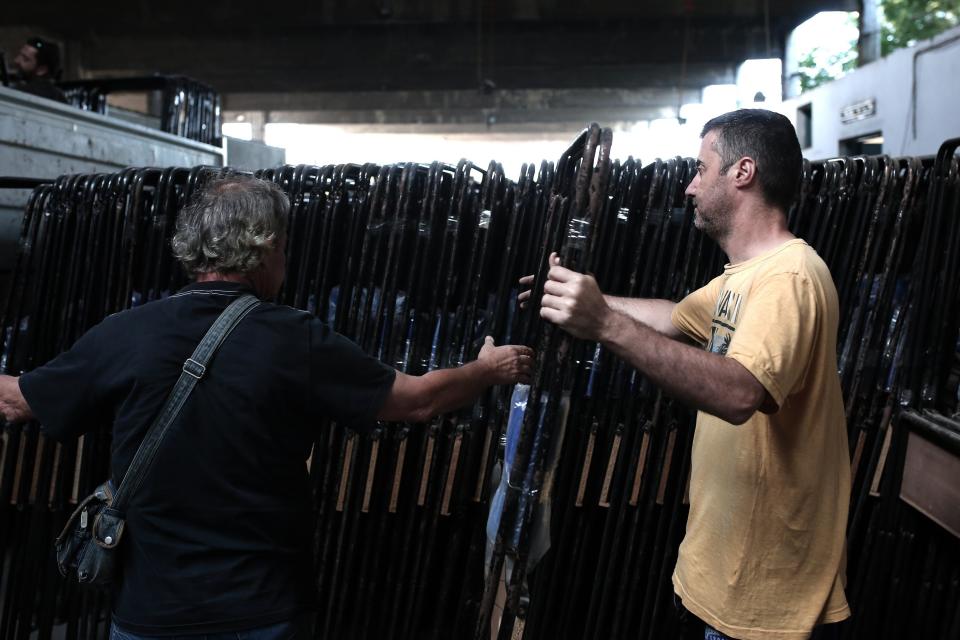

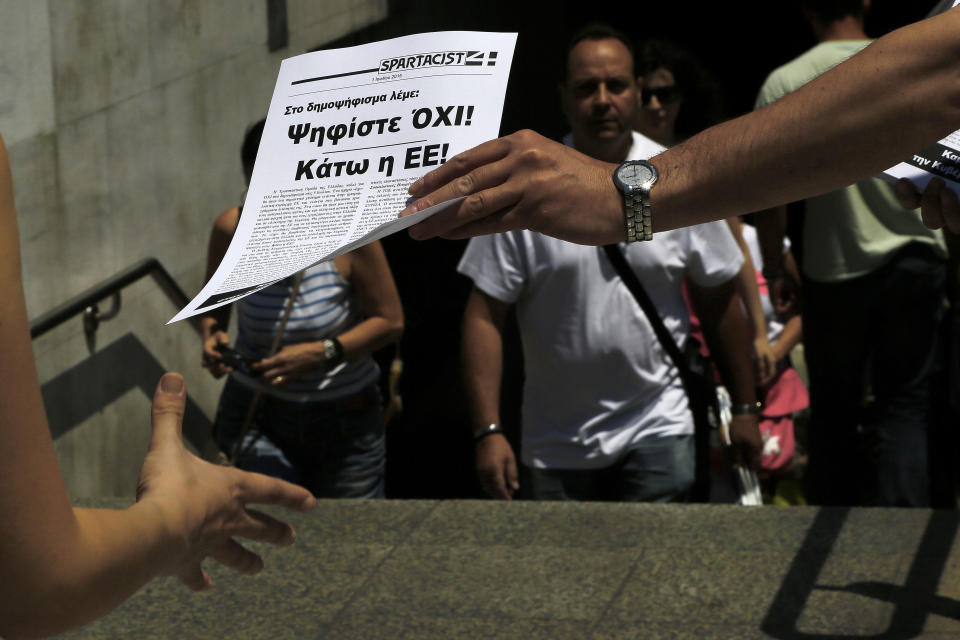
This article originally appeared on HuffPost.

